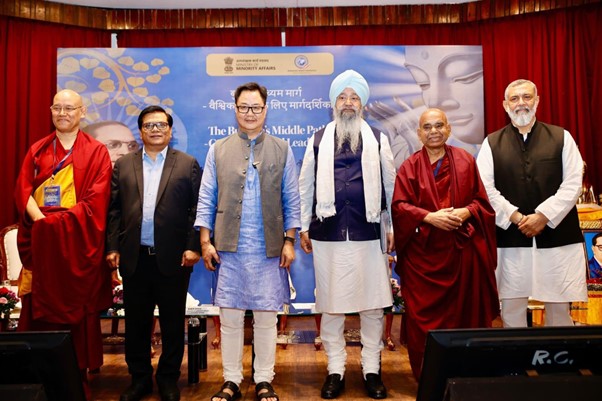-
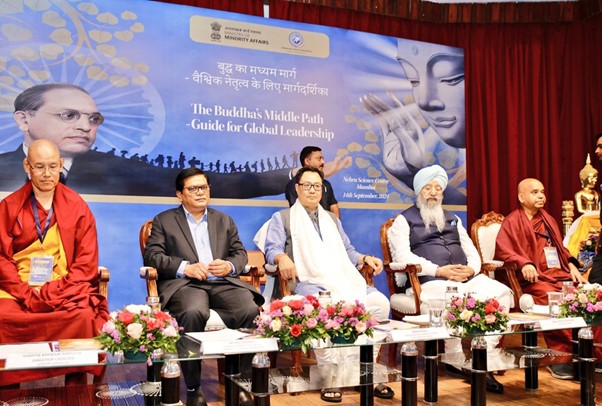
Buddha's Middle Path - Guide for Global Leadership

The International Buddhist Confederation (IBC), in collaboration with the Ministry for Minority Affairs, successfully organized the event titled “Buddha's Middle Path - Guide for Global Leadership” on 14th September 2024 at the Nehru Science Centre in Worli, Mumbai.

This significant gathering attracted approximately 80 monks and 350 laypersons, representing a diverse array of Buddhist traditions and communities. Among the distinguished attendees was Shri Kiren Rijiju, the Union Minister for Minority Affairs and Parliamentary Affairs, who delivered the keynote address.
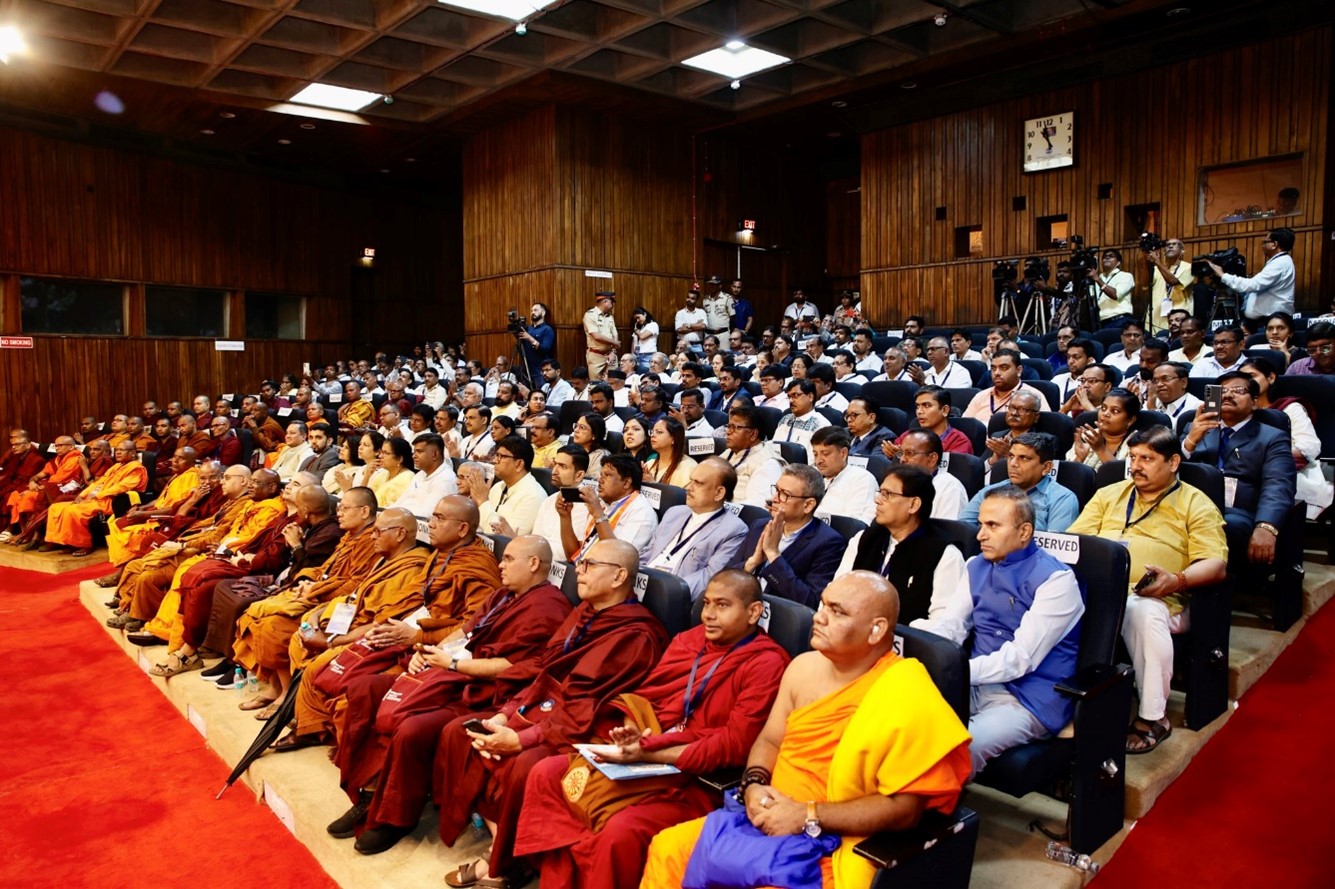
The participation of monks and laypersons alike underscores the shared commitment to advancing the values of Buddhism and their application in modern society. This event serves as a pivotal platform for enhancing understanding and cooperation within the Buddhist community and beyond, reflecting the growing recognition of Buddhism's contributions to global leadership and humanitarian efforts.
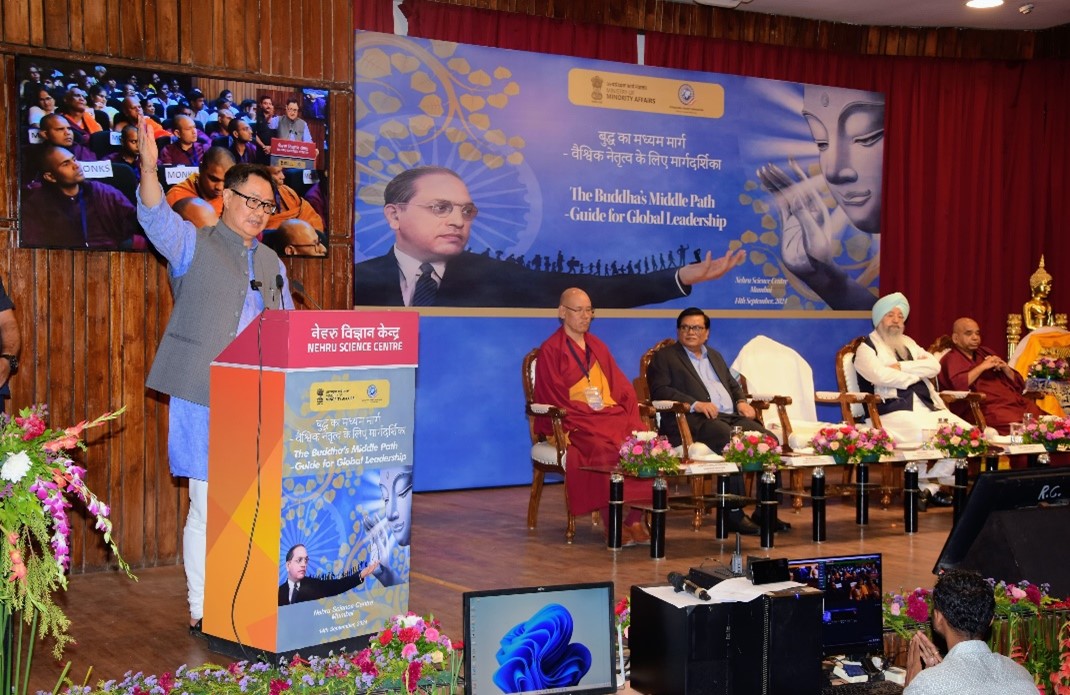
In his keynote address, Minister Rijuju emphasized the importance of reinforcing Buddhism in Maharashtra, suggesting that this could have a transformative impact across India. He highlighted recent government initiatives, such as the large-scale celebration of Buddha Purnima, showcasing the commitment to fostering Buddhist principles.
Core Values of Buddhism
Minister Rijuju referenced Prime Minister Narendra Modi’s speeches at international forums, which consistently reflect Buddhist values such as Karuna (compassion) and Seva (service). He articulated that these values are essential for establishing global leadership and maintaining peace.
He urged a unified effort to encourage more individuals to adopt these principles, recognizing Maharashtra’s unique position as a hub for Buddhism.
Tribute to Dr. B.R. Ambedkar
The Minister paid homage to Dr. B.R. Ambedkar, acknowledging his critical role in drafting the Indian Constitution and advocating for social justice. He also introduced various government welfare schemes aimed at supporting the Buddhist community, reinforcing the government’s commitment to enhancing the lives of its members.
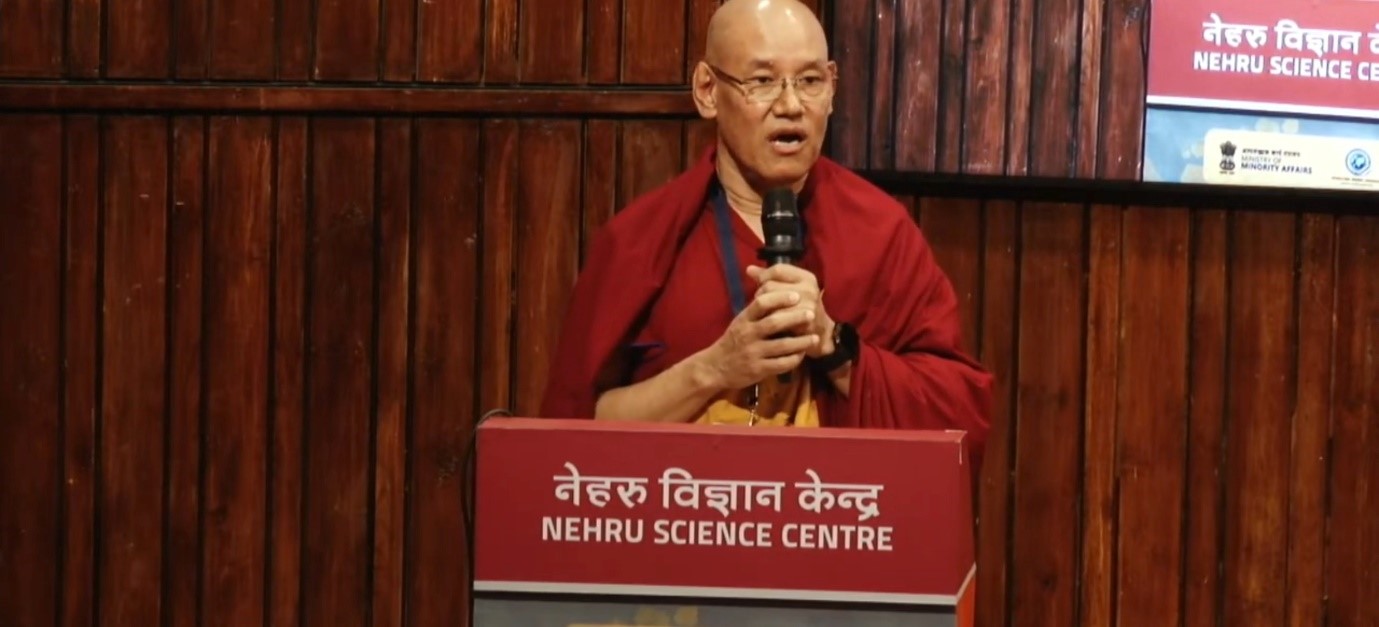
Shartse Khensur Jangchup Choeden, Secretary General of the International Buddhist Confederation, emphasized the teachings of Ahimsa (non-violence) and their role in fostering Daya (compassion) and Karuna (empathy). He argued that these teachings hold the key to addressing today’s global challenges.
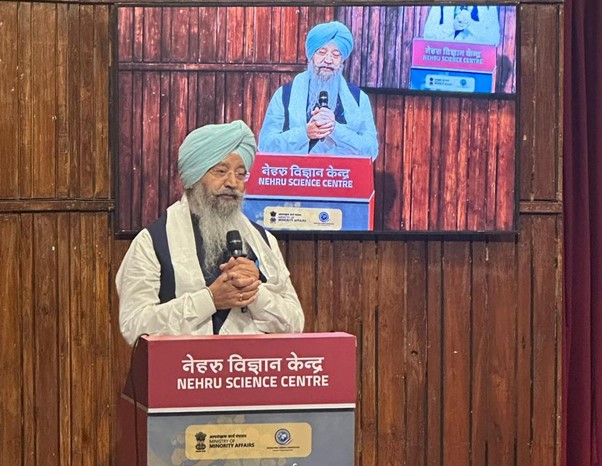
Iqbal Singh Lalpura, Chairman of the National Commission for Minorities, highlighted India’s historical role as a birthplace of multiple faiths, promoting love and compassion amidst a world often focused on power.
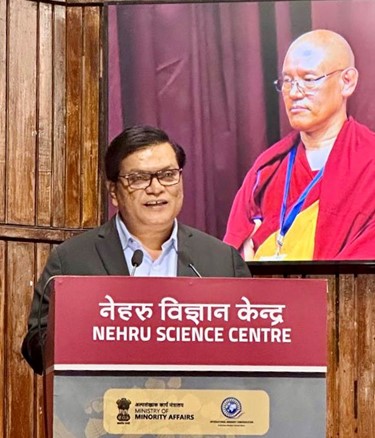
Dr. Milind Kamble (Padma Shri), Founder Chairman of the Dalit Indian Chamber of Commerce and Industry, reinforced the principle of being one’s own light, reflecting Dr. Ambedkar’s non-violent philosophy. He also pointed out that 18% of India’s entrepreneurs come from Scheduled Castes (SC) and Scheduled Tribes (ST), emphasizing the role of Buddhist values in promoting peace and lower conflict levels.
Legacy of Dr. Babasaheb Bhimrao Ambedkar
The conclave celebrated the legacy of Dr. Ambedkar, recognizing his invaluable contributions to modern Buddhism and ethical governance. His efforts to promote Buddhist values were hailed as vital for ongoing discussions on leadership and societal ethics.
Panel Discussions
The event included three engaging panel discussions focused on:
1. Role and Relevance of Buddha Dhamma in Modern Times
2. Significance of Mindful Techniques and New Age Leadership
3. Implementation of Buddha Dhamma
These discussions explored how Buddhist teachings can be integrated into contemporary leadership practices and contribute to global peace.
